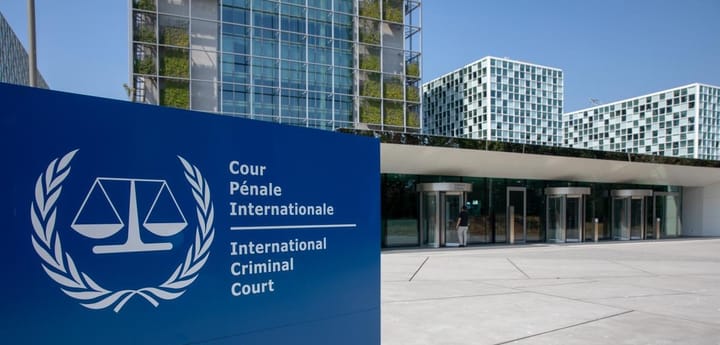Antisemitism as a Determinant of the Level of Democracy & Advancement in States

Show me the level of Antisemitism in a country, and I will predict the strength of their vital state structures, economy, and their propensity for sustainable advancement.
These pointers work together to determine a country's quality of life. The presence (or absence) of a conspicuous and impactful minority like the Jewish people reveals a lot about a people. This article will examine how these variables come together in an objectively provable manner.
The Jew, Democracy, Economic Growth & Advancement
Jews are not meant to be too many in numbers.
Some countries have experienced significant population booms over the past centuries. The Chinese were only 500 million in the 1930s. Seventy years later, China’s population was over 1.2 billion in the year 2000. India’s population was estimated to be around 250,000 in the 1920s. By the year 2000, they were over 1 billion – a 400% increase.
On the other hand, the recorded Jewish population in the 20th Century remained between 10 million and 20 million from 1900 to the year 2000.
The Jewish people are always small, but their impact has always been enormous.
Why?
The obvious answer is that Jews are holders of ancient knowledge. Jews have access to knowledge and principles from the premodern era. They have preserved, studied, and applied knowledge from some of the most obscure elements of history.
It is rare for any group of people to find reliable information on events that happened 5,000 years ago. We may have evidence of human settlements and activities from before that – however, documented information about modern humans from a few thousand years ago is rare.
Judaism preserves a vast conundrum of knowledge that goes back to 4,000 years ago.
Judaism is a protest to a world of chaos – ideas that could not sustain societies.
Thus, Judaism commenced as a protest to a lawless world of chaos.
The ancient Israelite nation that broke out of ancient Egypt laid the blueprints for three ideas that preserve humanity to this day:
1. Equality
2. Human rights, and
3. The rule of law.
Egypt was the complete opposite of these three essential elements of society. Pharaoh was deemed to be so powerful he could do whatever he wanted to anyone without consequences.
Judaism protested against the ancient Egyptian philosophy and instituted the blueprints for equality, human rights, and the rule of law.
To be fair, many cultures have developed sparks and systems that have consolidated and expanded these core elements of democracy and the rule of law as we have them today.
However, Judaism as a movement created a lettered culture that saw the consistent transmission of ethical monotheistic principles and ideas. This laid the foundations for the creation of just and sustainable societies.
When Jews were scattered across the nations after the Roman conquest, they moved with the lights of the Torah and its internal analysis and reviews that Jews learn and internalize as an end in itself.
Who Hate the Jew?
Throughout the Jewish exile, who hated Jews the most?
1. The indebted, and
2. The partisan
While Jews were often banned from many pursuits and activities, they were left with jobs that no one wanted to do – like money lending. Thus, throughout the expulsion of Jews, there were many times when Jews were expelled by people who owed them a lot of money.
At the most basic level, if you owed the Jewish moneylender a lot of money, getting the entire community expelled meant your loans were written off in totality.
However, what most people fail to understand is that loans function within an economic system. Thus, expelling a Jew because a few people owed them money meant the economy was at risk of collapsing. It is not surprising that the vast majority of people countries which expelled Jews readmitted them.
Then, there is the more common pattern of hungry power seekers using Jews as a means of reaching out to the masses. Throughout history, many have risen to power with a message that blends the hatred for Jews in whole or in part for society's problems. With Jews not rushing to counter such arguments, many incompetent leaders rose to power on the backs of Jews and Jew hatred.
In reality, such a group was bound to be exposed for what they are – incompetent. Thus, in many cases, when the Jew was demonized and power was won, these rogue partisans did not know what to do. And in some cases, they went on and on till they ruined the country in totality.
According to Amy Chua, ethnic hatred directed at a minority comes with three elements:
1. They must be in a minority, with no protections, otherwise people will fear attacking them.
2. They must be successful, and this transforms contempt into envy,
3. They are conspicuous and are noticed constantly[1]
Until after the Holocaust, most Jews simply lived quiet lives in small communities in Europe, the Middle East, and North Africa. There was no centralized Jewish authority that protected Jews.
Each group of Jews had to deal with hostilities and avoid actions that would put them in trouble. Many adversaries therefore took advantage of the fact that Jews had no such protections and treated them unfairly and harshly.
Where Jews were poor – like in Poland, Russia, Yemen, and other places, they were treated with contempt. However, their survival and progress were problematized. In areas where Jews could express themselves, they were envied. It was so serious that the Jews who converted to Catholicism in Spain and Portugal to avoid the 1492 expulsion were considered a risk as they were likely to marry into the aristocracy and rise socioeconomically.[2]. For this, the Inquisition was expanded to discourage Jews from participating and engaging in Spanish society.
Such trends prevented what could be, and limited what was. Ultimately, Jews could not do what they wanted to do for their country in peace. And the locals who could have done a lot were discouraged from doing what they could because they wasted so much time problematizing and worrying about Jews.
Democracy and the Jewish Presence
Sustainable democracy and the rule of law are held together by several pointers including:
1. Consensus building to contain factionalism,
2. The pursuit of objective truths
3. Recognition and protection of equality and basic human rights, and
4. Application of precedents and consistency
The treatment of the Jewish minority can make or unmake all these things. If one faction is allowed to gain power on the grounds of Jew-hatred, they might not have any plan for the majority of the people. Thus, states that have standards that protect Jews ensure that issues relating to Jews and Israel are not politicized.
Once Jewish matters are not politicized, factions within a country are forced to deal with pertinent issues that affect people. The Jew in such a country is also free to contribute knowledge stored up in 3,300 years of scholarship encapsulated in the Jewish tradition. This allows societies to thrive.
On the extreme end of the scale, states that take a universal anti-Jewish position are likely to replace Jews with the notion of "Satan". As such, serious issues that need to be solved are just considered Jewish-oriented problems, and the people tend to live a life based on the notion that everything about them is perfect. Thus, when anything goes wrong, the question is not "What did we do wrong". It is "How did the Jews get to do this to us". There are many regimes that have collapsed in recent times that thrived because they built consensuses on the basis of anti-Jewish and anti-Israel sentiments. These alliances blinded them to the essential issues that needed to be addressed.
Hatred for Jews inevitably blinds states and large sections of the population to objective truths. Jews by nature, will not intervene in such situations. There are 613 commandments the Jew should be concerned with. One cannot expect them to go after every minor manifestation of hatred towards the community.
Equality and basic human rights are always tested by how minorities are treated. Jews are people who have lived more as minorities in the world throughout history. Jews are always a minority population. They do not actively seek converts and are always fewer than the communities and groups they live amongst. How Jews are treated, determines the way fundamental human rights are protected.
Where Jewish rights are overlooked or denied, the rights of other minorities are likely to be overlooked as well. Thus, the treatment of Jews is a test case for human rights in most societies.
Jews are highly resilient. They thrive and excel even with minimal rights. The way a state reacts when Jews start succeeding determines the nature of their precedents and the consistency of their legal system. This goes on to consolidate or limit the notion of justice in the country.
Economic Growth & Advancement
Very few things in our world are “novel”.
Almost everything has existed before. Things are renewed and regenerated over time.
Many things in today’s world have been attempted in the past – banking, blockchain technology, law, and commerce have all thrived in different ways and forms in the past.
However, most of these experiments failed because of the lack of security and functional governance.
Jews are the greatest witnesses of history. Jews also documented aspects of history in ways that no other group has tried.
The Torah given by Moses and its oral tradition provides a robust body of knowledge that captures developments around the world and documents it in ways that can be applied in the future.
Rabbinic debates from 1,500+ years ago cover rare insights into Babylonia, Rome, Greece, Egypt, and all over the ancient world. This comprehensive body of knowledge and application are stored in the Talmud and Oral Traditions of Judaism. Generations of Jews have studied them, refined them, and applied them. These studies were done as an end in itself. Sometimes, Jews gave their lives to study ideas and concepts that had no direct application in their place and time. However, this preserved and grew the body of knowledge.
In every generation, Rabbis and Jewish scholars write commentaries on the vast body of Jewish knowledge. This further refined ancient knowledge and gave future generations clues on how best to apply and utilize these concepts.
When Jews live in a given land, they apply and utilize all this knowledge in sectors and activities. The Jew has a broad lens of faithfully transmitted knowledge on many fields of knowledge that they can apply to contribute to nation-building. It is therefore no coincidence that any nation that welcomes Jews tends to thrive and prosper.
Antisemitism Destroys it All.
Most antisemites do not pause to think of what Jews are contributing to their countries. They just look up to the Jews as a weak unprotected people. They view them with contempt and naturally envy their successes, and then they proceed to problematize the very existence of the Jew in their country.[3].
In many cases, the humility of the Jew, and the Jewish commitment to higher knowledge and higher ideals divert attention from the need to fight and eliminate antisemites. When this continues unabated, antisemites get their way and mess everything up for everybody.
However, the ultimate loser in antisemitism is rarely the Jew. The Jew is almost always living a modest and simple life. It is the masses and people of the country who were benefiting from the quiet, but impactful actions of the Jews who suffer.
Factionalism always leads to war. And in many cases, the most destructive factions are antisemitic. And because they win power without a counter-thesis but pure hatred for Jews, they have nothing to offer but more violence and hate.
Antisemitism blinds people to objective truths. This also creates an entire ecosystem of hate which begets more hatred that ultimately destroys the society.
Setting the Jew apart to treat him cruelly means human rights and equality are disregarded. This creates a culture of injustice which is spread throughout the country till the country collapses.
Finally, the Jew has a lens through which to view any challenge or problem. This is based on access to an ocean of knowledge which includes the Rabbinic tradition that is made up of a body of unlimited writings and scholarly sources. When put together, the Jew can develop a higher-order thinking framework that grants extremely efficient results. When Jews are treated with hostility, they either move to another country or simply become unproductive in the country they live in.
Conclusion
Antisemitism does not harm Jews as much as it harms the host country where it is nurtured. When the Jew is gone, the evil seeds of antisemitism sprout into dangerous branches, leaves, and fruits that destroy the entire country and its people. Those who win power by antisemitism tend to become destructive because they have no means of ruling and giving the people a better life. The expulsion of the Jew is a brain drain which cannot be replaced. Furthermore, the denial of basic rights to the Jews creates a legal system that is unjust and cruel. All in all, antisemitism is an automatic assassination of democracy, economic growth, and advancement in countries where it is practiced.
[1] Amy Chua. World on Fire: How Exporting Free Market Democracy Breeds Ethnic Hatred and Global Instability. New York: Doubleday, 2003
[2]Jerome Friedman, “Jewish Conversion, the Spanish Pure Blood Laws and Reformation: A Revisionist View of Racial and Religious Antisemitism,” The Sixteenth Century Journal vol. 18, no. 1 (Spring, 1987) p14
[3] Amy Chua. World on Fire: How Exporting Free Market Democracy Breeds Ethnic Hatred and Global Instability. New York: Doubleday, 2003




